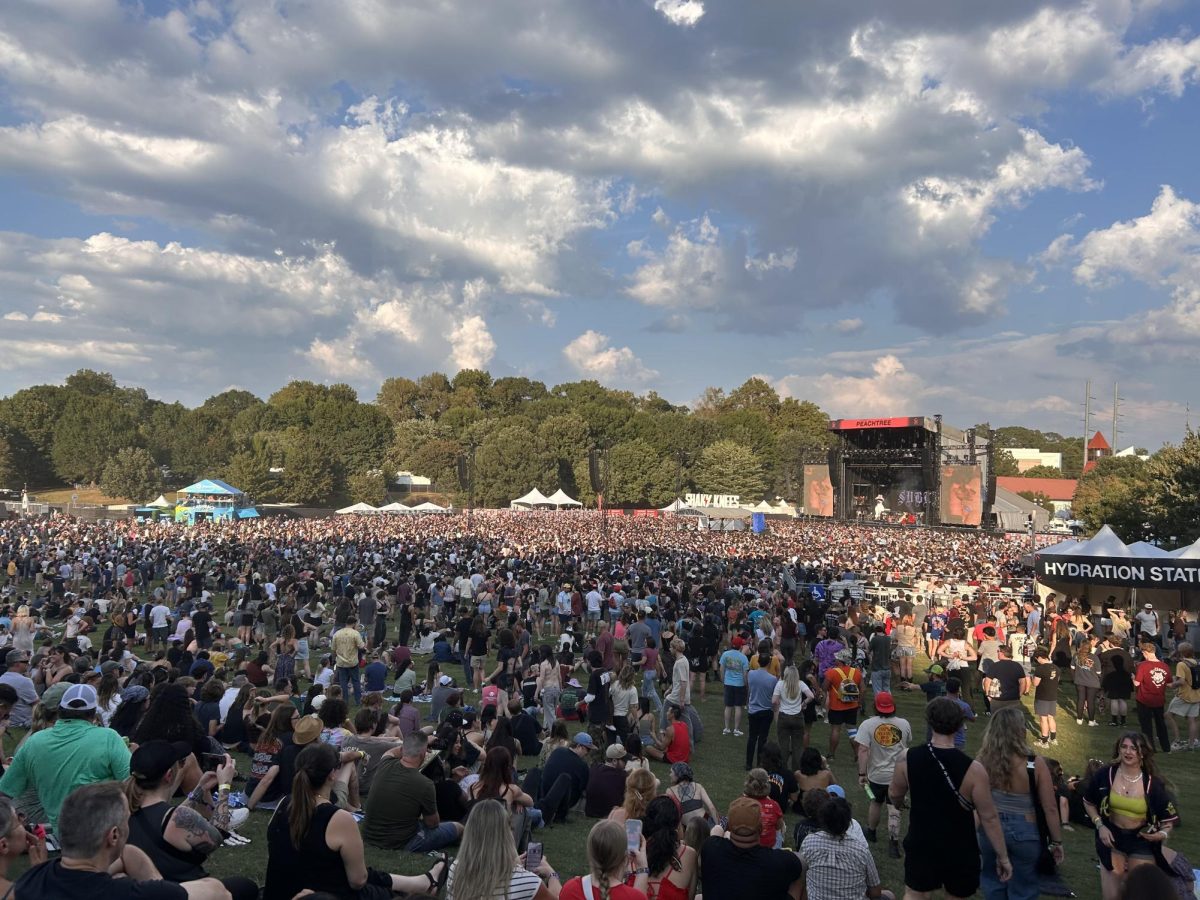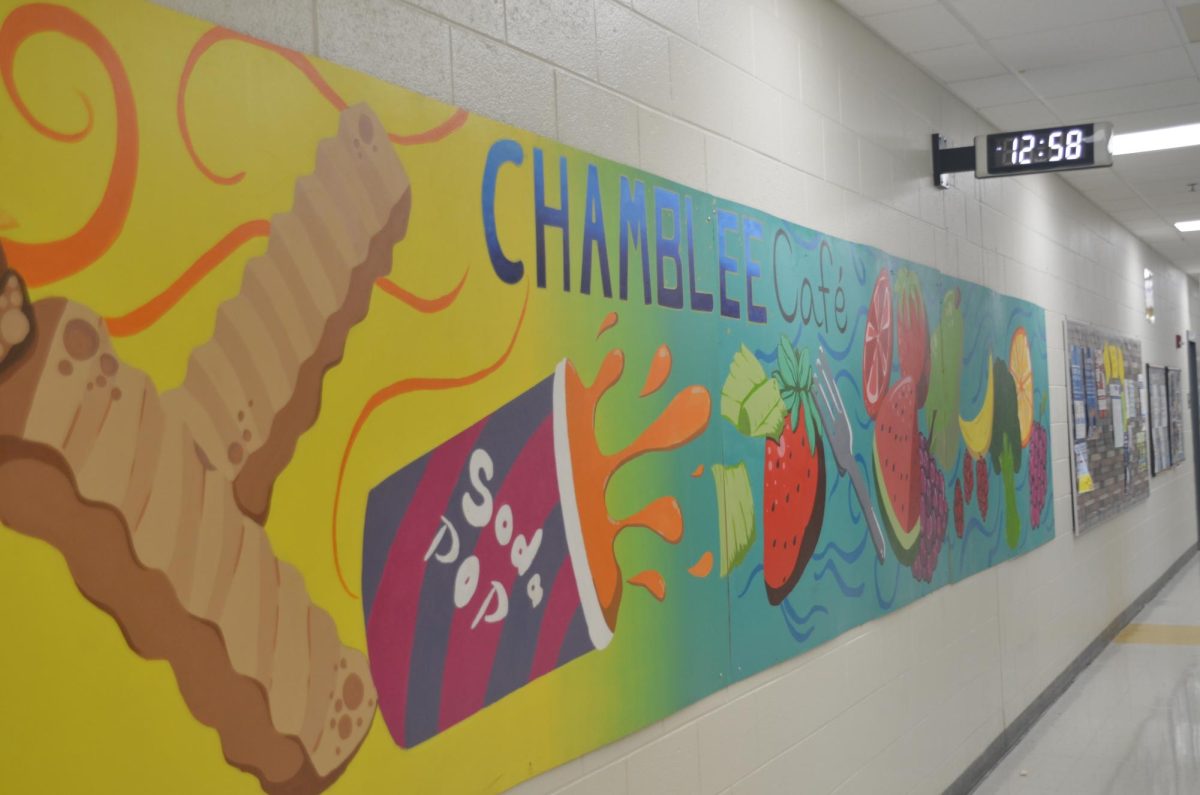Georgia Shocks the Nation: CCHS Reacts to 2020 Election
December 2, 2020
As the end of 2020 nears, the people of the United States have cast their ballots for the next President of the United States. And while political fervor and discussion ran high among Chamblee students across all grade levels, this year’s election served as a particularly significant milestone for many seniors (and recent graduates)—as their first time voting.
“I voted in-person and it felt gratifying to know that I played my part as a U.S. citizen,” said senior and first-time voter Nic Yen.
Of course, a presidential election occurs only every four years, meaning that the last senior class at Chamblee that was eligible to vote in one while still in high school was the class of 2017. And naturally, voters faced some particularly unique circumstances voting this time around with the COVID-19 pandemic.
“The experience was pretty normal, except the booths were kind of spread-apart and everyone was wearing masks,” said Yen. “I was glad the voting center took those precautions; it definitely made me feel safer.”
As for the actual election results, former Vice President Joe Biden was elected to become the 46th president of the United States over incumbent Donald Trump in a victory of 306 electoral votes to 232, to the delight as well as the dismay of many students.
“I was happy with the results because the candidate I voted for, Biden, won the election. I voted for him because I felt that he would deal with COVID-19 more seriously and responsibly and would take more action toward racial justice than Trump,” said senior Charles D’Souza.
Yen, on the other hand, was more content with a Trump loss than a Biden victory.
“I wouldn’t say I’m ecstatic, but I’m glad the American people voted Trump out of office so we can start fostering a new culture of understanding and unity instead of breeding a culture of division, prejudice, and hate,” he said.
Class of 2020 graduate and Chamblee alum Kieran Ferguson also voted for Biden and was satisfied with the results, but still has some concerns regarding the Democratic Party’s ability to campaign and appeal to voters.
“I’m cautiously happy about the results. We decisively voted out one of the worst presidents in history, but it was still too close,” he said. “Democrats lost seats in the House and didn’t win the Senate outright. This is all against a man that mishandled the COVID crisis, caused a recession, tried to take away 20 million people’s healthcare, and take advantage of our country’s racial divisions. He was more interested in being on TV than he was in governing, yet Democrats still couldn’t defeat him in a landslide.”
One particularly significant feat during this election is the fact that Georgia, a state that typically votes “red” for the Republican party candidate, flipped for Joe Biden. In fact, the last time Georgia voted “blue” before this year was in the 1992 election between Bill Clinton and George H.W. Bush.
“I thought it was cool to see how much of an impact Georgia had in the election. I felt that I influenced this election in a small way,” said D’Souza.
Ferguson agrees with this sentiment.
“It was almost poetic,” he said. “Trump insulted our city, he tried to use us as a political tool to divide this country, and we were the voters that ended his presidency. John Lewis died, and we honored his legacy by coming out in droves to exercise our right to vote.”
Georgia’s flip due to a marginal difference in votes actually helped many voters realize the value in every vote.
“Initially, I believed that my vote had no meaning, but after this election I learned that voting is very important and that my vote truly matters,” said D’Souza.
There is some controversy surrounding the results of this election due to President Trump and many of his supporters’ accusations of mass voter fraud being committed.
“It makes me worry for our democracy. There is no credible evidence of any voter fraud, yet 78% of Trump voters believe that the election was stolen,” said Ferguson. “his system won’t work unless we’re all operating on the same set of facts, and the complicit silence from Republican Congressmen is shameful. But their conduct isn’t surprising—these are the same people that won’t acknowledge the science of the climate crisis.”
Ferguson, who ran an outreach group called “Win With Z” with other Chamblee students intending to expand the national electorate, worked with local and state political campaigns to help them reach larger online audiences and appeal to younger voter bases.
“I’m on a gap year and had accumulated the money to travel, but it didn’t feel right to leave. This election felt like a crossroads. In a world trending towards authoritarianism, could America show that multiracial, liberal democracy still works? I had to stay and do what I could to help. For me, it was helping state house candidates with their social media pages.” said Ferguson.
Students are not alone in their understanding of the historic nature of the 2020 election. The importance of the election has been somewhat emphasized by teachers, particularly those who teach social studies.
“I teach A.P. Human Geography and World Geography,” said teacher Jessy Hamilton. “We discuss current events all the time. In some of my classes this year, the election did come up, but it was from an international point of view. Students questioned how other countries view the United States in light of our current President, the election we just held, and our new President-elect. Some students expressed relief with the results of this most recent election, while others have stated that they look forward to [Trump] having another opportunity to run in four years.”
Hamilton believes that teachers have a duty to prepare students to become educated and involved in our democracy.
“My teaching with regards to the election focused on: 1. evaluating news sources (real news vs. fake news), 2. identifying bias in news sources, and 3. how to tell fact vs. opinion,” said Hamilton. “I provide students with the tools to make their own informed decisions and develop their own opinions.”
When discussing politics in the classroom, there is an emphasis on neutrality from the teacher.
“The results have no bearing on my teaching per se.” said AP US History teacher Jennifer Tinnell. “Personally I feel relieved that a person/team I supported won the election. My vision for our country is brighter and more hopeful for all of us. Personally, my outlook is more positive. But we are advised as teachers to not allow our personal opinions concerning politics to enter our daily instruction. I believe I strike a fairly balanced sense of awareness when trying to connect history to current scenarios. If I can tie the present to our past, then I will.”
Although they don’t express support for any particular candidate, teachers have encouraged their students to get involved in political activism in general. Unfortunately, efforts to get students involved have been somewhat restricted by the pandemic.
“In the past, I have offered students the opportunity to work for the presidential campaign of their choice for extra credit,” said Hamilton. “In 2016, I had 50 students volunteer for Hillary Clinton, 6 students for Donald Trump, and 6 students for Gary Johnson. Students participated by phone banking, texting voters, and canvassing (talking to voters at their homes). Due to the pandemic and distance learning, I was unable to safely coordinate these volunteer activities this year, but I am looking at future opportunities for kids to get hands-on experience in our community with local leaders.”
Although the presidential election is over, Georgia still has plenty more politics to come. Two runoff elections will be held on January 5 that will determine control of the US Senate, with the Republicans currently holding a slim 50-48 majority. Students who turn 18 on or before that date are encouraged to vote. Voter registration ends December 7.











